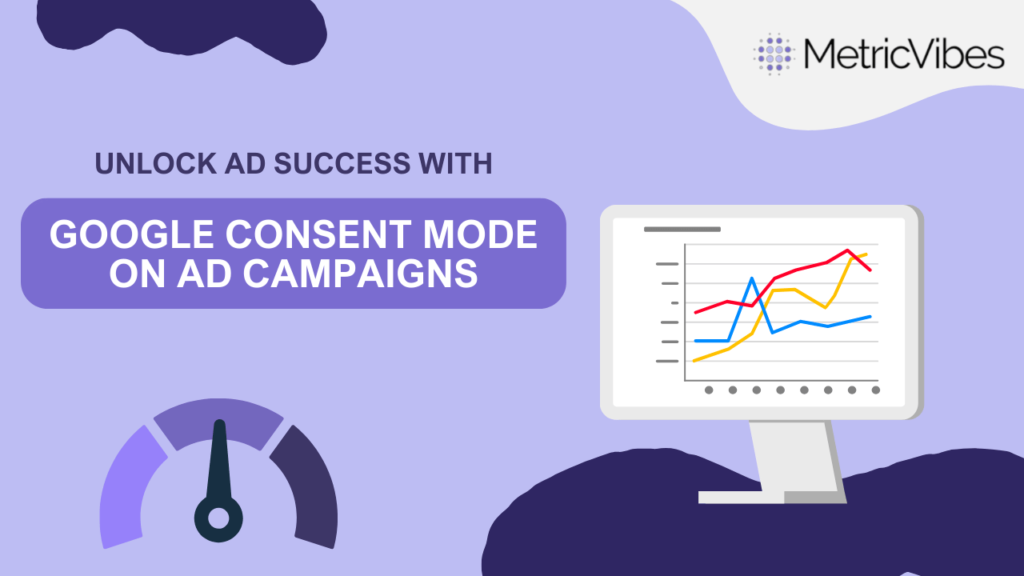Unlock Ad Success With Google Consent Mode On Ad Campaign
As privacy regulations continue to tighten worldwide, businesses are increasingly challenged to balance user privacy with effective data-driven marketing strategies. Google Consent Mode is one of the tools designed to help advertisers navigate this complex landscape. By ensuring compliance with privacy laws like GDPR and CCPA, while still providing valuable data insights, Google Consent Mode aims to optimize ad campaign performance without compromising user privacy. Let’s dive into the significant impacts of Google Consent Mode on Ad Campaign.

1. Required Config for Automatically Collected Events
A critical update with Google Consent Mode is the requirement for a config command or the Google tag to be installed on web pages for automatically collected events to be sent. This update prevents unconfigured events from being communicated, which reduces the number of (not set) attribution values in reports. This guarantees that only agreed data is gathered, resulting in more credible reporting.
2. Improvements to Attribution Channel Assignments
The improvements in how attribution data is processed under Google Consent Mode mean that key events are now more accurately assigned to the correct channel groups. This update lowers the misattribution of events to the Direct channel, offering a clearer view of traffic sources and boosting the precision of your marketing operations.
Key Impacts Google Consent Mode on Ad Campaign
Enhanced Data Accuracy
By requiring consent for data collection, Google Consent Mode reduces the occurrence of incomplete data. Conversion modeling can recover up to 70% of data typically lost due to lack of consent, offering a fuller view of user interactions and conversions. This leads to more reliable analytics and better-informed marketing decisions.
Improved Compliance
Consent Mode ensures compliance with privacy regulations like GDPR and CCPA. This compliance builds user trust, as it shows a commitment to respecting user privacy and handling data responsibly. By adhering to these regulations, businesses can avoid potential legal issues and penalties.
Refined Audience Targeting
The granular control over user consent allows users to decide what data they share. This control can limit targeting reach as some users may opt out, potentially reducing the effectiveness of personalized ad campaigns. However, it encourages transparency and trust, which can enhance user engagement and opt-in rates over time.
Optimized Conversion Tracking
The shift to consent-driven tracking means that conversion tracking must adapt to varying levels of consent. Predictive modeling helps bridge data gaps by using aggregate data to estimate user behavior, maintaining the accuracy of performance metrics despite limited direct data.
Challenges and Opportunities
Challenges
- Reduced Targeting Reach: Granular user consent can limit your targeting pool as some users might opt out, potentially impacting campaign reach and effectiveness.
- Conversion Tracking & Optimization: Conversion tracking and campaign optimization might need adjustments as historical data might not account for varying consent levels, making it harder to measure true performance.
- Technical Implementation: Integrating Consent Mode into current systems involves technological changes to assure compatibility and respect user choices. This may be a difficult process.
Opportunities
- Enhanced Compliance: Consent Mode simplifies compliance with evolving privacy regulations, mitigating compliance risks and future-proofing your campaigns.
- Building Trust: Prioritizing user transparency and choice fosters trust with audiences, potentially leading to higher engagement and conversion rates from opted-in users.
- Future-Proof Strategies: Embracing user-centricity links your tactics with the direction of advertising, preparing you for long-term success in a privacy-conscious environment.
Strategic Recommendations
Implement Professional Consent Management Solutions
Use tools that manage user consent seamlessly, ensuring compliance and optimizing the user experience. This approach helps maintain data integrity and legal compliance without compromising user engagement.
Leverage Predictive Modeling
Utilize Google’s conversion modeling to estimate user behavior and fill data gaps, enhancing the accuracy of your analytics and enabling more informed marketing decisions

